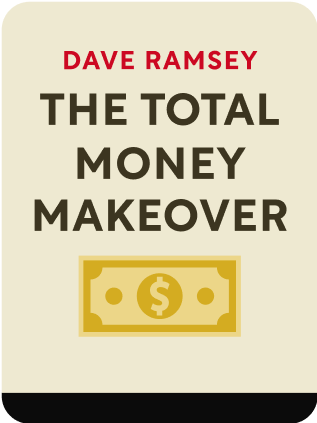

This article is an excerpt from the Shortform book guide to "The Total Money Makeover" by Dave Ramsey. Shortform has the world's best summaries and analyses of books you should be reading.
Like this article? Sign up for a free trial here .
What are some myths about money? How do money myths keep you from making the best financial decisions?
Myths about money are part of the background shared by Dave Ramsey in Total Money Makeover. According to Dave Ramsey, money myths are rooted in ignorance and shortcuts.
Read on to understand how myths about money might be affecting you.
Mindsets Behind the Myths About Money
Like myths about debt, there are myths about getting and handling money. They run counter to the Total Money Makeover principle of effort and sacrifice, of living differently from everyone else now so you can live differently from everyone else in the future. Becoming financially fit has a cost and there aren’t any shortcuts.
According to Dave Ramsey, money myths stem from two basic mindsets:
1) Ignoring risks: People who are poor at managing money often ignore the risks of deals that seem attractive on the surface, or they ignore risks of failing to act when they should. There are several reasons:
- They may ignore risks out of laziness—they don’t want to put in the effort of investigating “great deals” for a downside—it’s easier to just believe the seller or lender—or they do so out of greed.
- They’re overwhelmed and just settle for a bad solution.
Regardless of the reason, those who deny a so-called deal’s risks end up disillusioned and worse off financially.
2) Looking for shortcuts: People facing money challenges often look for a shortcut or an easy solution, whether it’s winning the lottery or falling for a TV offer to make quick money or fix debt problems. But shortcuts, like microwave dinners or instant coffee, produce disappointing results.
The 14 Myths
These two mindsets help fuel the following myths about money:
- Things will work out if you don’t plan for retirement.
- Gold is a good investment, especially in an economic crisis.
- Cash value life insurance or whole life insurance are good ways to save.
- Prepaying your funeral or your children’s college tuition protects against inflation.
- Buying a mobile home is better than renting because it’s an investment.
- When you’re divorced, you’re not liable for loans your ex agreed in the divorce decree to pay.
- It can’t hurt to play the lottery—you never know, you might get rich.
- Books and DVD sets touted on TV can tell you how to become wealthy by working only a few hours a week.
- No one has time to plan a monthly budget, or make a retirement or estate plan.
- Debt management companies advertising on TV can help you pay off your debts.
- A credit repair service can “clean up” your credit, erasing past problems.
- It’s easy to file for bankruptcy and start over.
- You can get away with skipping insurance.
- It’s not important to have a will if you’re young.

———End of Preview———
Like what you just read? Read the rest of the world's best book summary and analysis of Dave Ramsey's "The Total Money Makeover" at Shortform .
Here's what you'll find in our full The Total Money Makeover summary :
- The 7 steps to achieving financial stability (you'll love #7)
- A fool-proof plan for becoming debt-free
- How myths about debt and money are crippling your financial health






